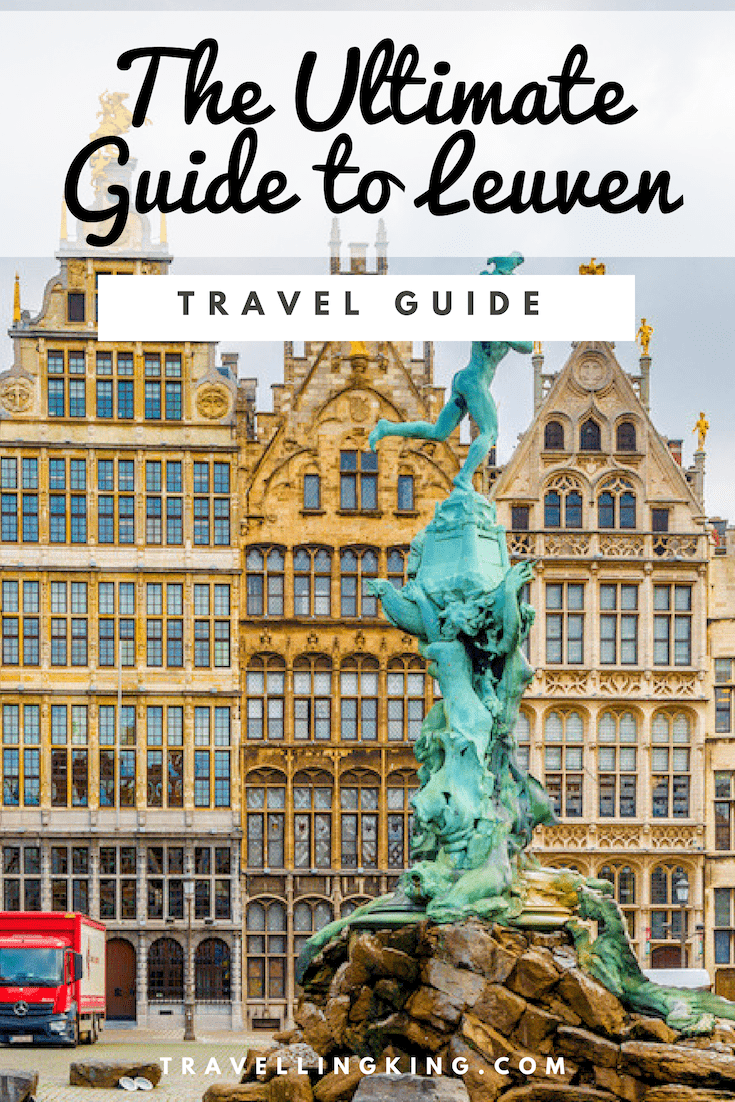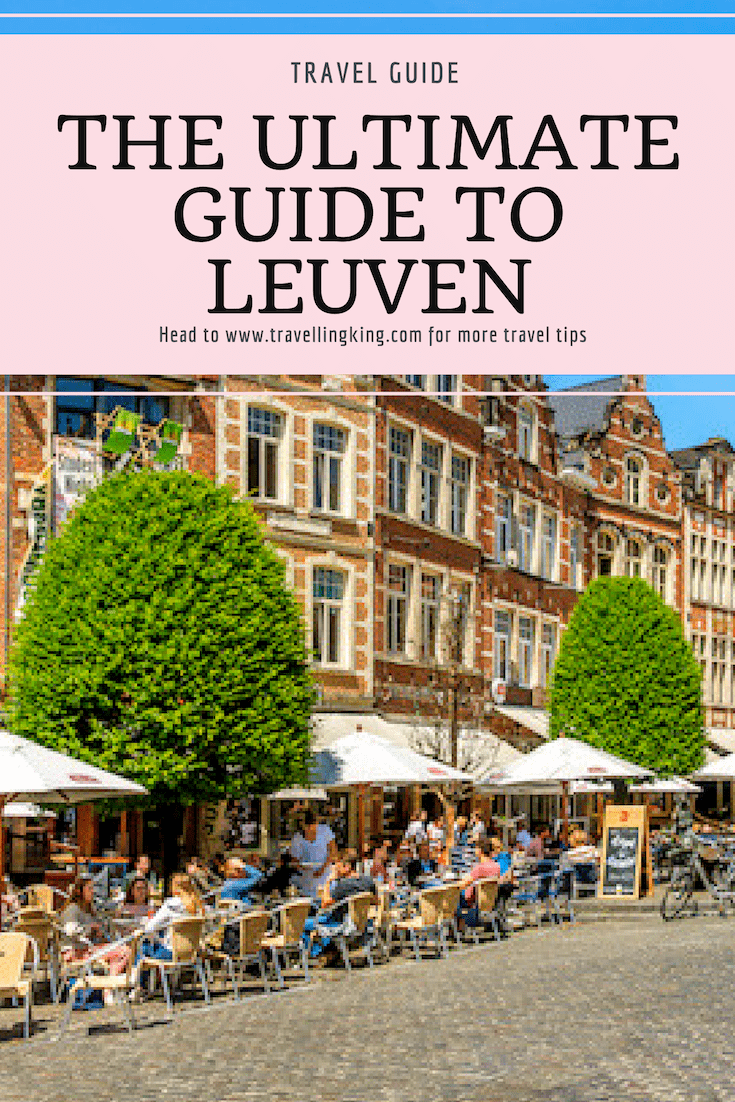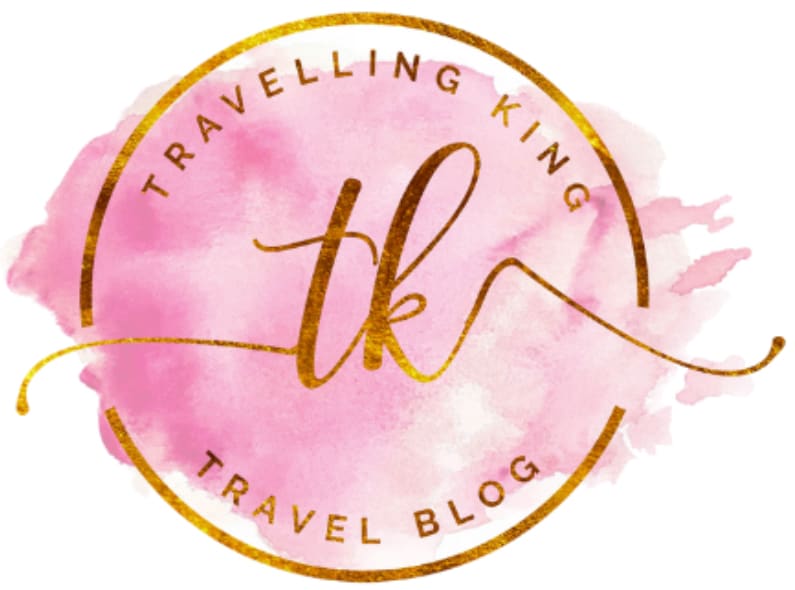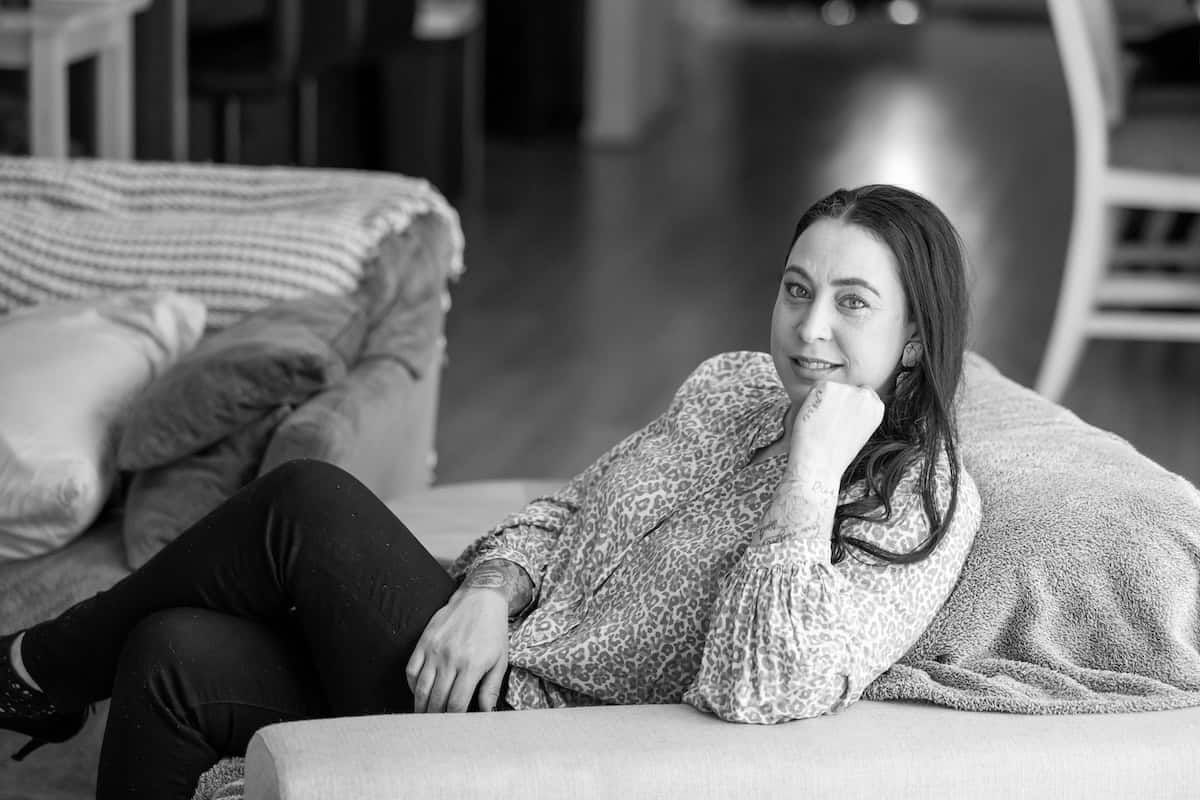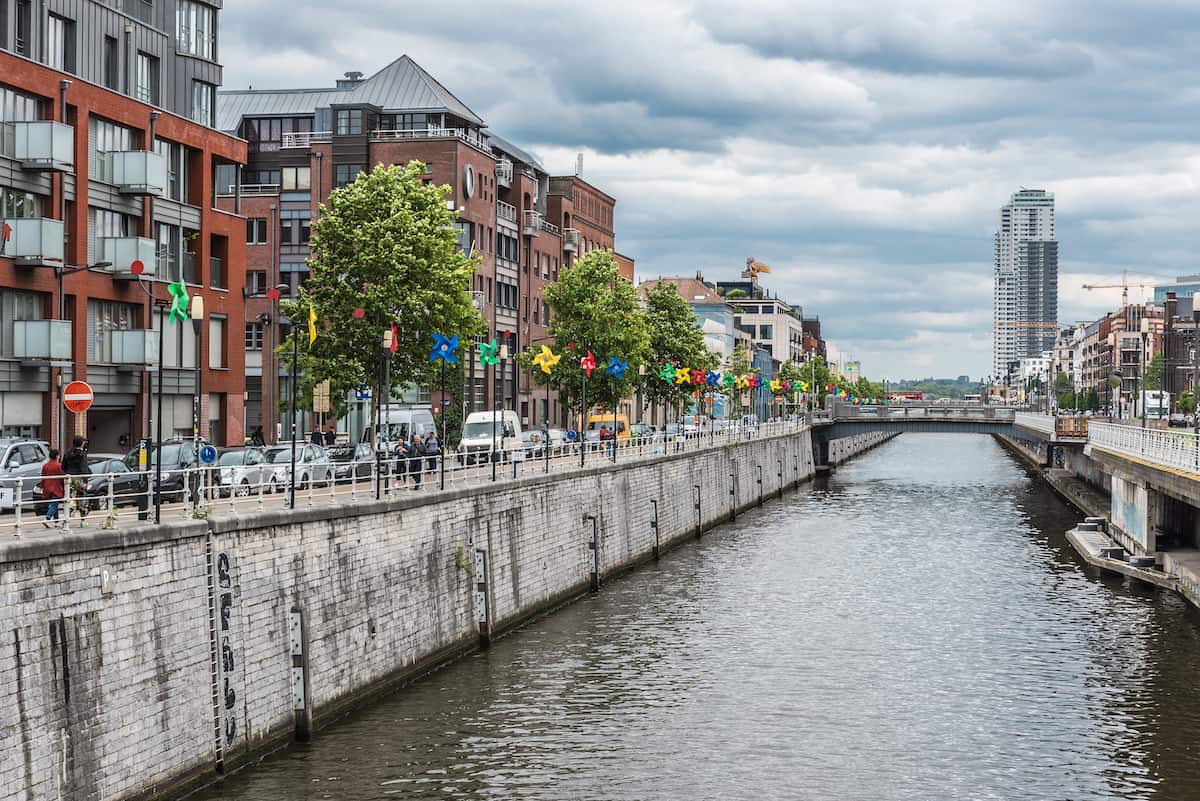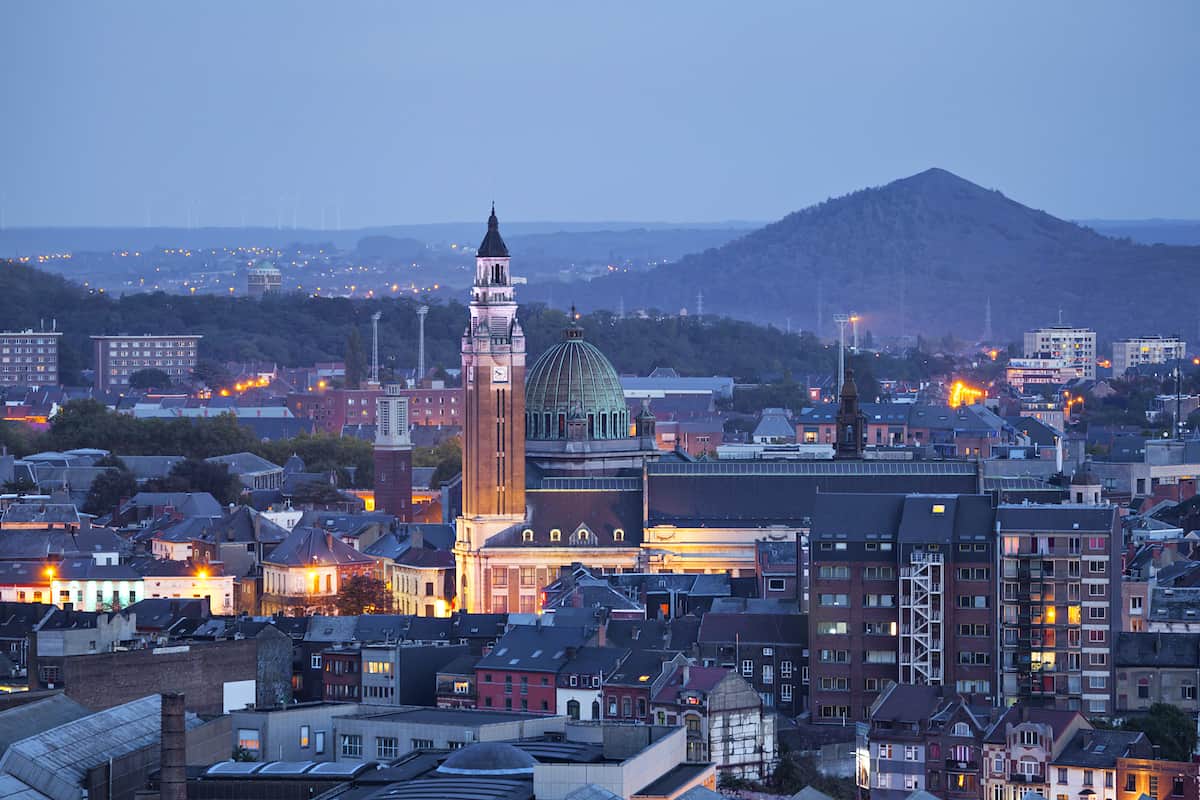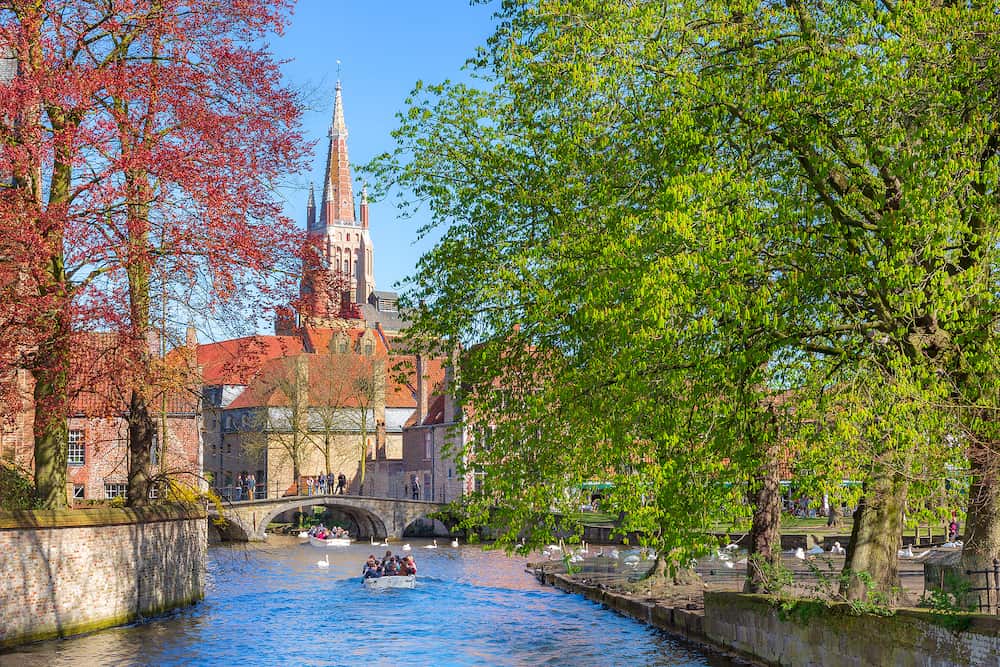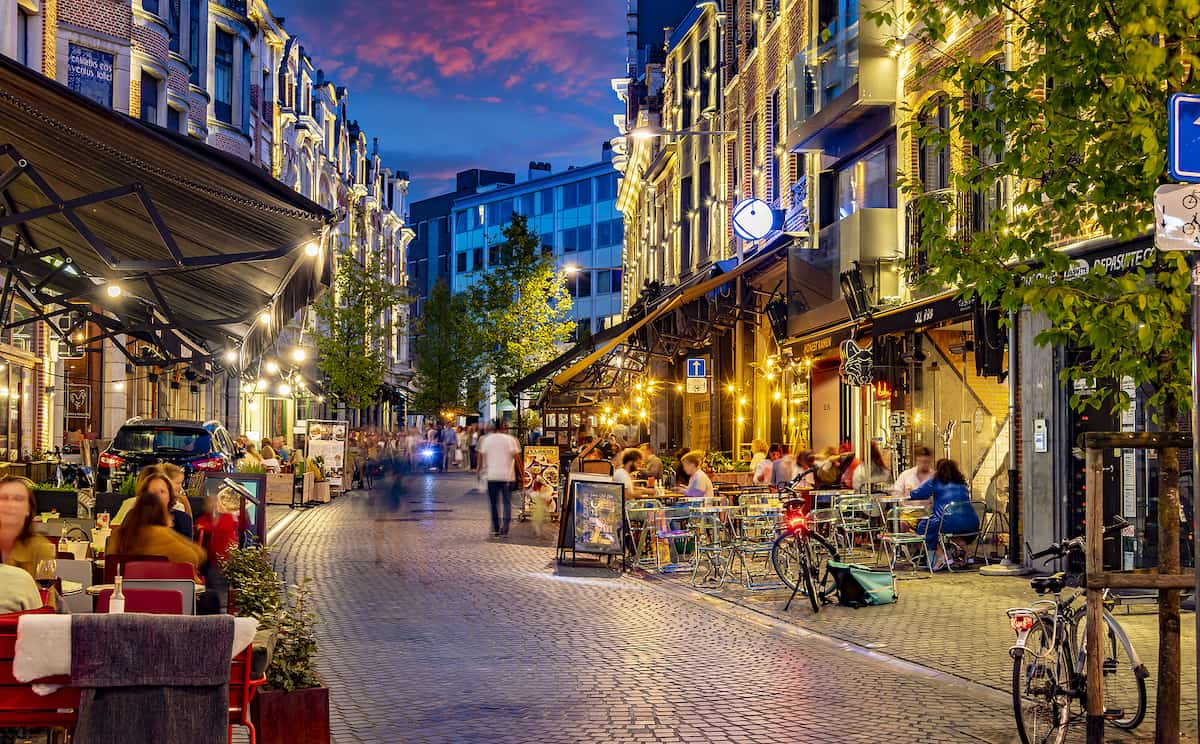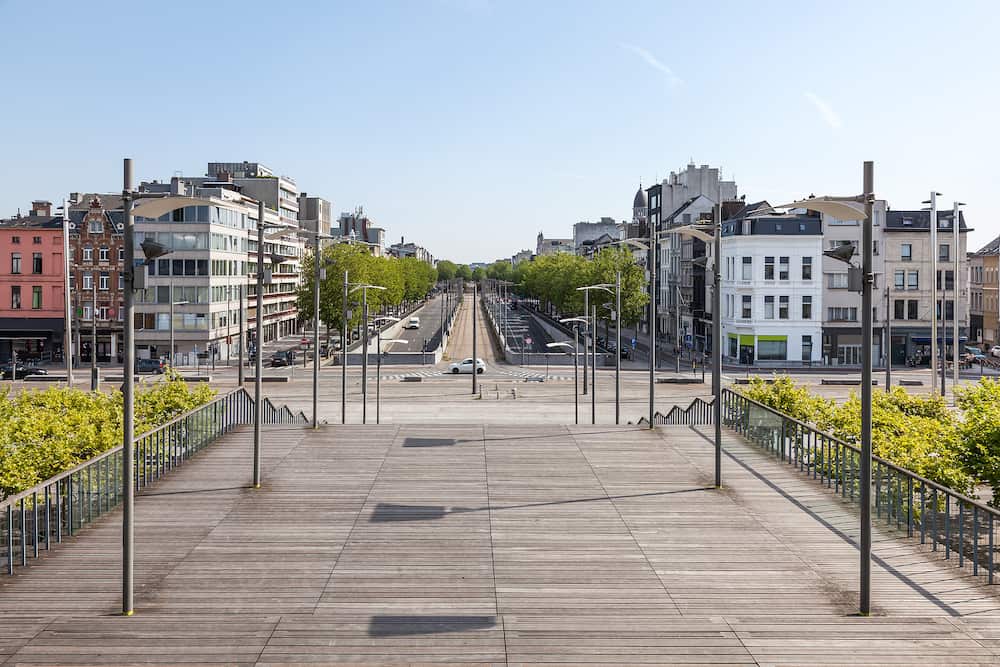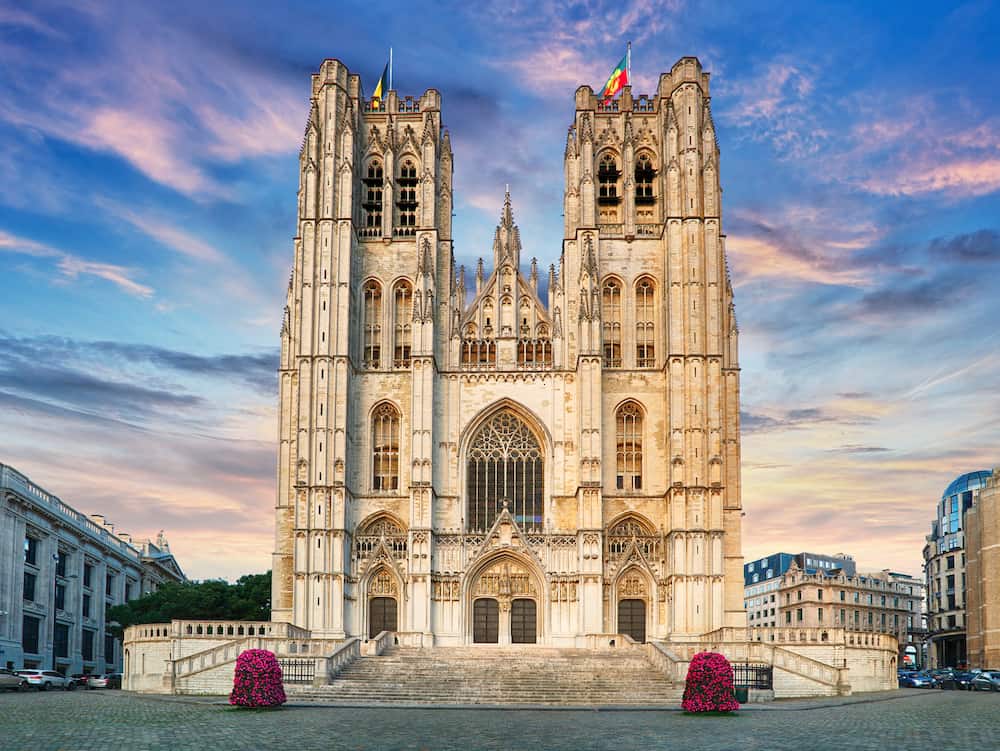The Ultimate Guide to Leuven
Leuven is a Belgian city east of the capital Brussels. It has a population of about 100,000 people, many of which are university students.
There’s no denying that Leuven is a quaint town that’s brimming with energy. There’s a lot to see and do, from the picturesque landmarks and cultural heritage sites and to the famous breweries.
There’s a lot of history and charm to uncover here, so let’s get into the ultimate guide to Leuven, Belgium.
Plan your trip
Save on fees abroad with the Wise Card—use it at ATMs, restaurants, and for flights or hotels in over 150 countries. Manage 40+ currencies in real-time with the Wise app.
Need Help Planning?
- Cheap Flights: Find the best deals.
- Accommodation: From hostels to luxury stays.
- Car Rental: Affordable options worldwide.
- Sightseeing Tours: Explore without breaking the bank.
- Travel Adapter: One adapter for all your needs.
- Travel Insurance: Don’t risk it—stay covered.
This post includes affiliate links. Read my full disclosure and content policy.
How to get to Leuven
Leuven is about 30 kilometres east of Belgium’s capital city, Brussels. From Brussels Airport, you have numerous transport options. Trains depart every half hour during the week, and every hour on weekends.
The trip to Leuven takes only 13 minutes from the airport, or 24 minutes from Brussels Central Station. Leuven has one main train station, located in the northeast part of the city and a short walk to the centre.
There are also bus lines, but trains are typically faster and easier. The train is also convenient if you’re coming to Belgium from a neighbouring country like France, Germany or the Netherlands.
If you’d prefer to drive from Brussels, it’ll take you about half an hour via the E40.

What to expect in Leuven
Belgium is a country with many mother tongues and dialects. The national languages are Dutch, French and German, but you don’t need to speak any of these to get by.
While Leuven is located in the Dutch-speaking part known as Flanders, English is widely spoken.
As half of the population are young students, you’ll have no trouble communicating here if English is the only the language you know. However, keep in mind that Belgians are reserved people and may not feel inclined to greet anyone they don’t know.
As Belgium is a part of the European Union, the currency used is euro. This replaces the old Belgian franc and makes it very easy for you when travelling in and out of the country.
Tipping is not required in Belgium, as most restaurants add on an additional 10 to 15 per cent charge to your final bill. Unless you felt the service at a restaurant was outstanding and you’d like to give a little extra, you don’t need to worry about leaving a tip.
Leuven is famous for its breweries, so expect to have a beer (or many) on your trip. As a matter of fact, the entire country is known for its beer.
Cult pilsner Stella Artois is brewed in Leuven, so it’s likely you won’t leave the city without having a taste of it. That being said, the drinking culture is relaxed here and the locals can handle their alcohol well. You won’t typically find any loud revellers in the streets unless they’re tourists.
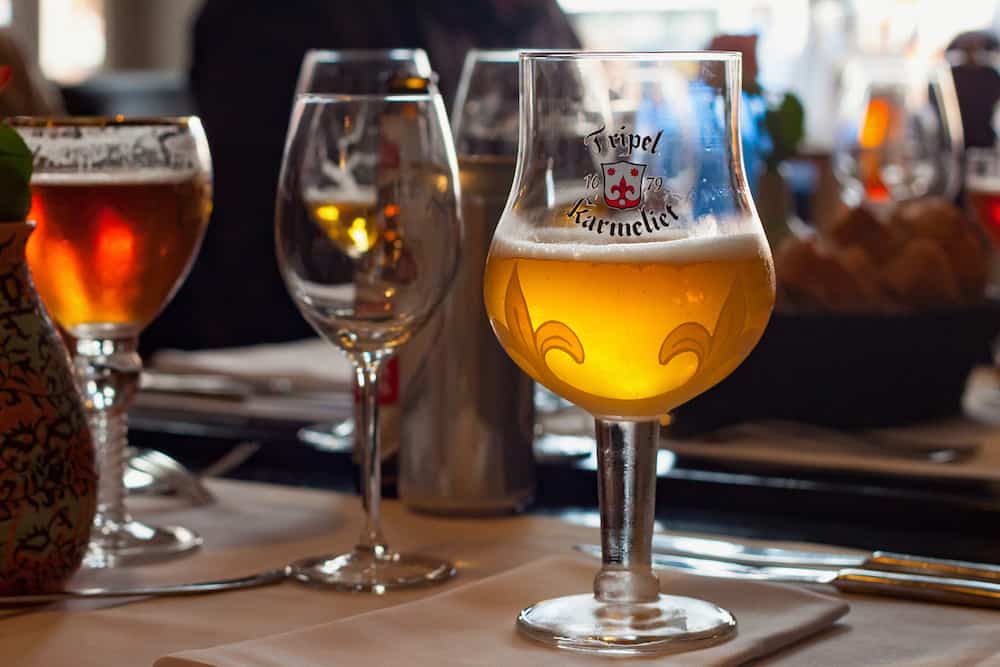
How to get around Leuven
Since Leuven is a small city, it’s easy to get around on foot. Parking can be difficult, so if you need to get somewhere a little further out, opt for the bus rather than renting a car.
KU Leuven, a research university in the city, has some helpful information on finding bus routes and schedules. There’s also the number 600 bus on weekends, with various stopping points around the ring road.
Renting a bike is a fun option too if you’re not in a rush and want to explore leisurely. You can use Blue-bike to find information and real-time availability for short-term bike rentals at Leuven Station. Cycling is a popular way to get around in Leuven, so you’ll fit right in with the locals.
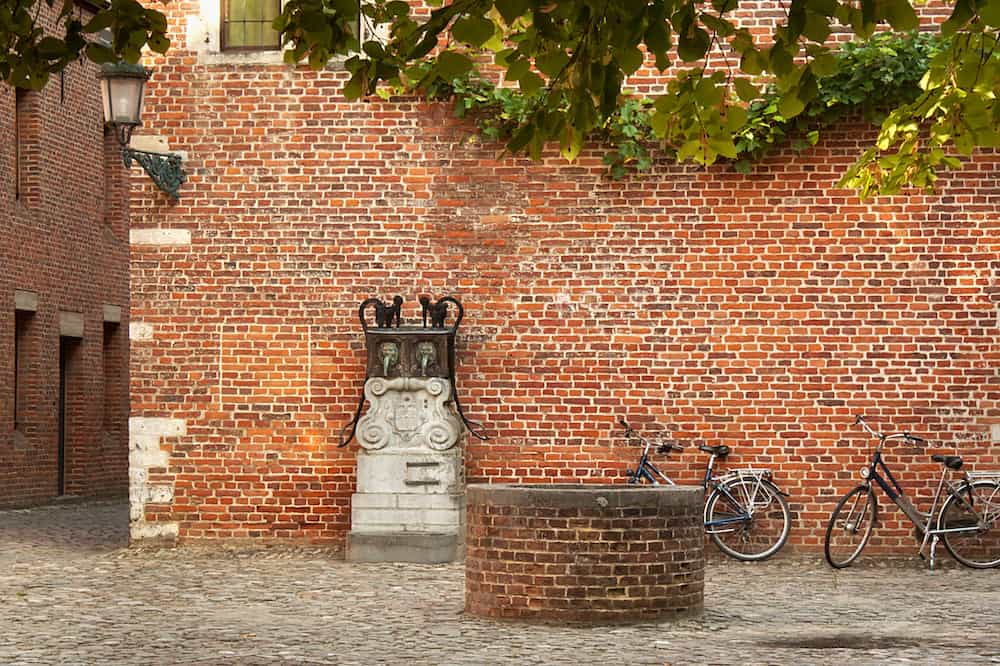
The Best Time to Visit Leuven
For a combination of decent weather and average crowds, book a trip to Leuven during the off-season. Shoulder months like May and October are the most pleasant times to visit. In fact, any time during spring (March to May) is ideal for exploring the city.
The city sees the highest amount of tourists from June to August. If you want to avoid the busy crowds and have a relaxed time, try to skip the peak summer holidays.
On the other hand, the cold winters in Belgium may be unpleasant for you. Prices also rise around this time because of Christmas and New Year’s Eve.
Things to do in Leuven
When you’re planning what to do in Leuven, be sure to add a few art galleries and museums to your list. M-Museum is the best of the best and home to over 50,000 works, including late-Gothic sculptures and 16th-century paintings.
Mixed in with the older artworks are contemporary and interactive pieces. Themed exhibitions, lectures and workshops are put on throughout the year, so be sure to check the schedule during your visit.
Galerie Dessers is a beautiful space that showcases pieces by both established and up-and-coming artists. If you want to see a more diverse collection of works, head further out to Frans Vanhove. This gallery features ceramics, glass art, photography and sculptures.
If you want to do some shopping, Diestsestraat is the main street to head to. It’s home to all the Western stores you’re familiar with. If you’d rather support local boutiques and small businesses, you’ll find a more intimate retail experience on Mechelsestraat and Vismarkt.
There are fun things to do in Leuven at night as well. The large student population means there are plenty of good bars around. All you need to do is head to Oude Markt (aka Old Market), which is affectionately referred to as the longest bar in Europe.
Café Belge is one spot you can’t miss, with a solid selection of drinks and a mix of locals and tourists. Café Allee is a laid-back industrial hangout where you’ll find Belgians of all ages enjoying a beer together.
If you want a quieter spot further away from the main square, Mattiz is perfect for some cocktails and tapas.
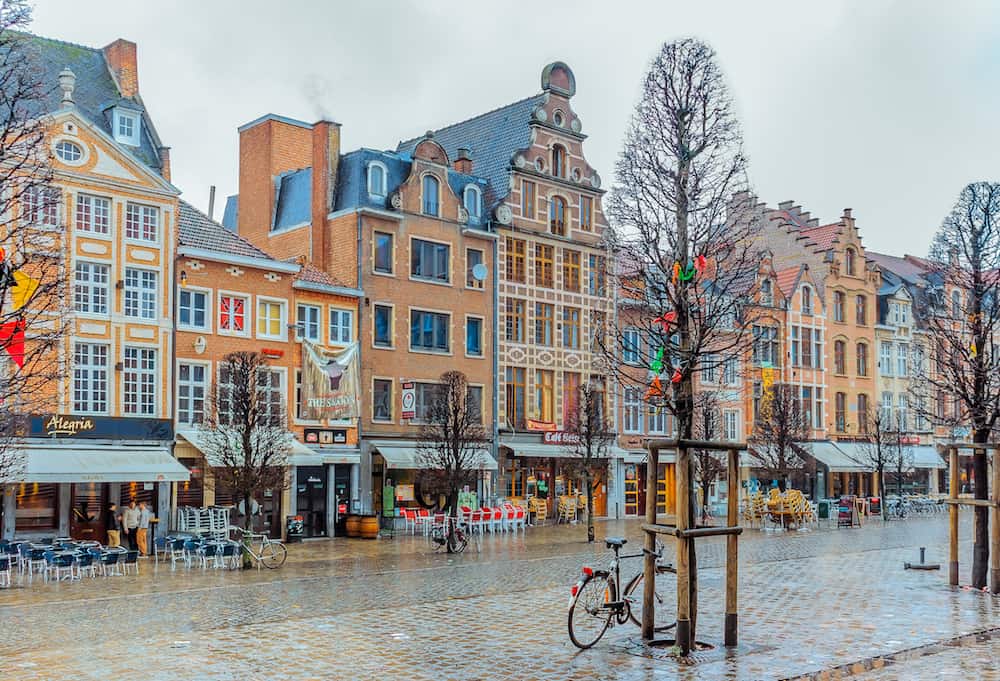
Places to visit in Leuven
Look over a copy of the Leuven tourist map to make your sightseeing smoother. In addition to all the local statues and must-see landmarks, the map will also show you routes worth detouring down.
All the attractions listed on the map are located within the ring road of Leuven, which marks the centre of the city.
Leuven Town Hall, aka the City Hall of Leuven, is one of the most iconic landmarks in the city. This ornate building dates back to the 1400s and is a remarkable example of late Gothic architecture.
The exteriors were revamped in the 1800s with embellishments dedicated to individuals of religious and cultural significance. The facade is truly magnificent and considered to be the most impressive in Europe.
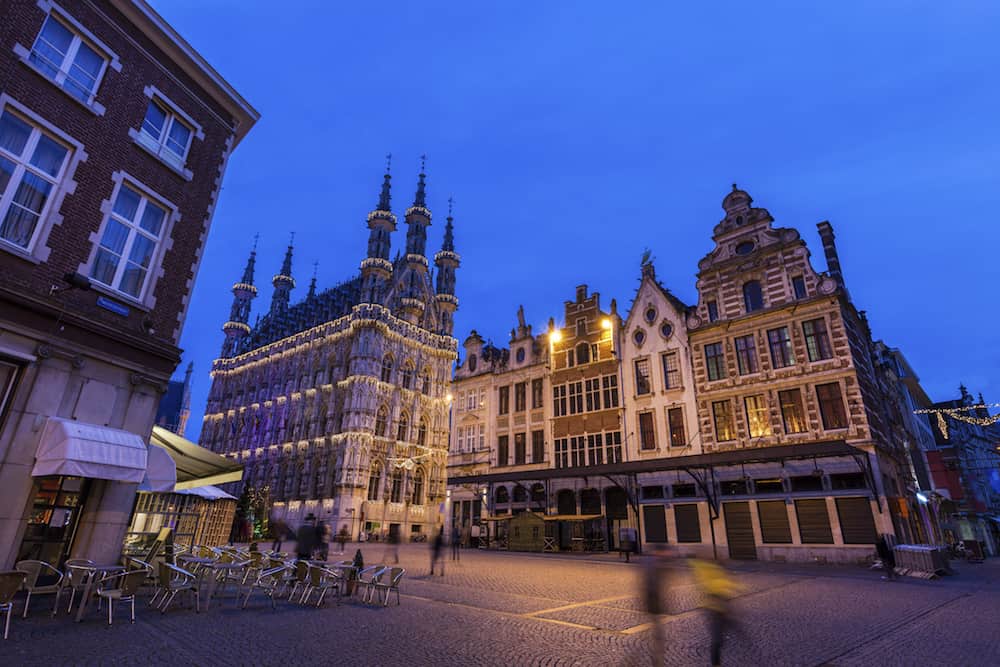
Opposite the Town Hall is the majestic Saint Peter’s Church. It shows off a similar Brabantine Gothic style and is home to many artworks and relics that have remained during both World Wars.
A kilometre away is Groot Begijnhof, a historical quarter that was once home to a community of unmarried women.
The 13th-century complex, known as a beguinage, is almost like a small town. It has distinct characteristics unlike any other beguinage.
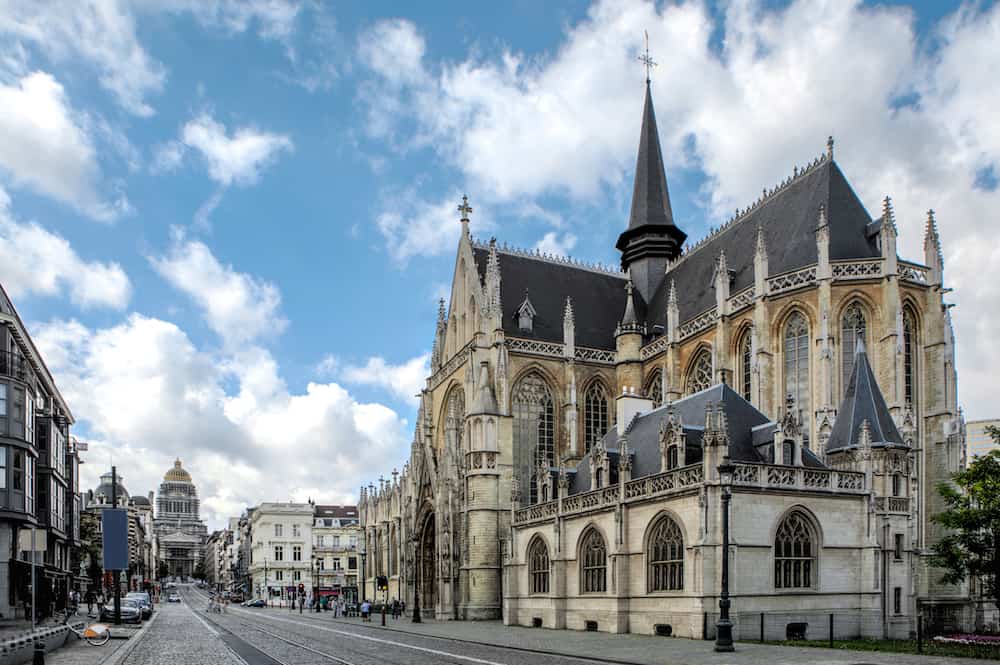
In between the historic buildings are gorgeously manicured pockets of nature. The Hortus Botanicus Lovaniensis is the oldest botanical garden in Belgium, created for medical students and enjoyed by botany enthusiasts.
In addition to the diverse collections of plants, there’s a beautiful orangery and tropical greenhouse. Education and research programmes run regularly if you’re interested in learning more.
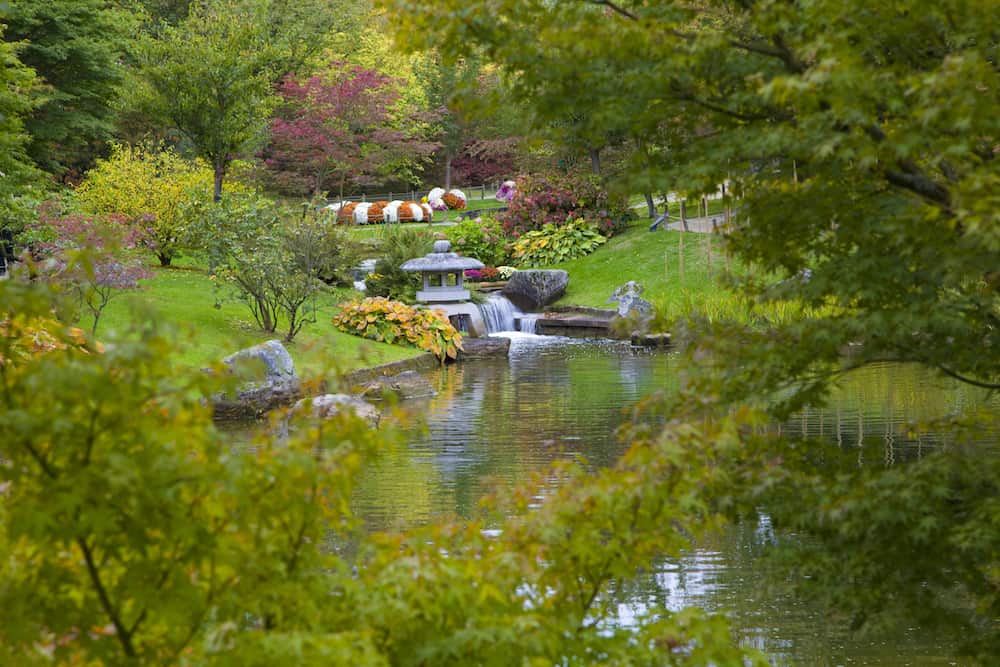
What to eat in Leuven
Belgium has some great street foods to try, many of which the country has become known for. Fried potatoes (aka frites) originated here and were introduced back in the 1700s.
De Smullende Heks is one of the best hole-in-the-wall spots in Leuven. Come to get a paper cone full of fries with a dollop of sauce and mayonnaise. It’s also common to order moules frites at a restaurant, which are fries served with a bowl of mussels.
For a sweeter treat in Leuven, you’ll find waffles everywhere. Stalls sell them hot or cold, either plain or with added nuts, Nutella, honey, whipped cream and fruit on top. Of course, there’s also Belgian chocolate. You’ll have your pick of places to taste some, but you can head to Think Chocolate! or Neuhaus Leuven for the real deal.
For sit-down meals, you’ll find an abundance of fantastic restaurants in Leuven. Below are just a few of the most laid-back and authentic places to get a bite to eat.
De Werf is a cosy gastropub with an open terrace, serving warm food at affordable prices. Don’t be deterred if it’s a little chilly out, as you can grab one of the blankets available and rug up.
Den Angelus is another great spot for traditional Belgian cuisine. With limited seating, it’s an intimate dining experience right down from Grote Markt.
Mykene is the spot to go if you’re with a group of both vegetarians and meat lovers. There are mouth-watering options for everyone here, from vegan dishes to duck and mussels.
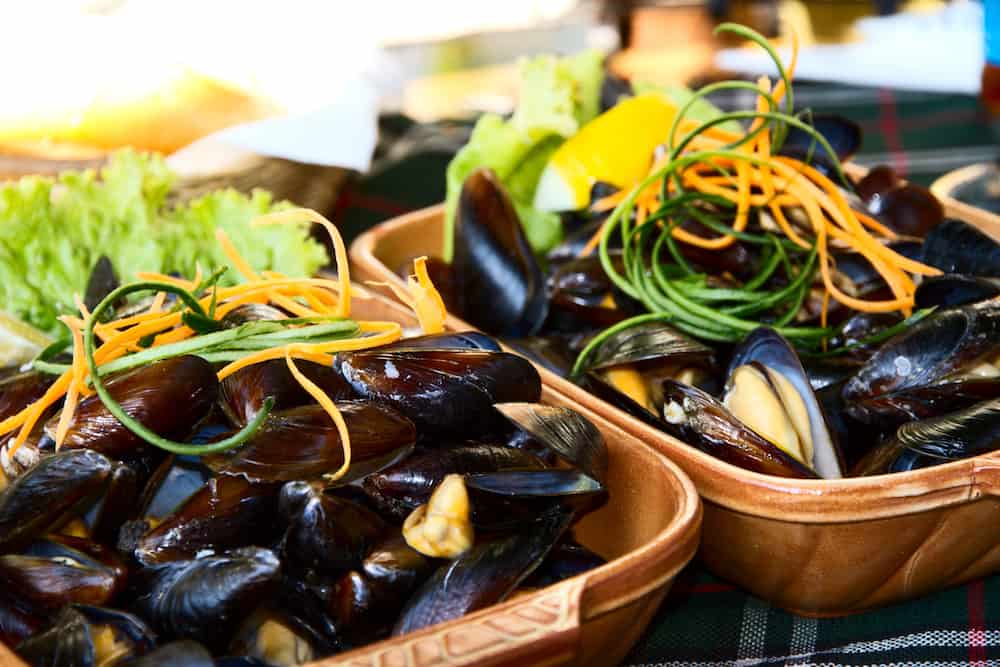
Where to stay in Leuven
Accommodation in Leuven ranges from chic and modern to historic and authentic. Here are a few of the top places to stay while in Leuven.
Gasthof De Pastorij is a charming bed and breakfast in the very heart of Leuven. The owner has an impeccable eye for detail and takes great care in ensuring guests have a wonderful stay.
The fantastic hospitality and the cosiness of the rooms will make you feel right at home. You can also enjoy the daily breakfast buffet full of freshly baked bread and local produce.
For more affordable accommodation, Ibis Budget Hotel will meet your requirements. The rooms are white, modern and minimalist with pops of lime green.
The hotel is conveniently located beside Leuven Train Station and suitable as a home base if you’re going on a lot of day trips. With double beds, twin singles and extra bunks, it is ideal for groups of friends or families.
If you want to go all out, Begijnhof Hotel is one of the most luxurious hotels in Leuven. If you’re after a beautiful and relaxed setting, you’ll enjoy the secluded terrace garden and medieval cobblestones.
There are views of the garden and the Dijle River from the modern rooms and suites. There’s also a sauna on-site and a unique food bar.
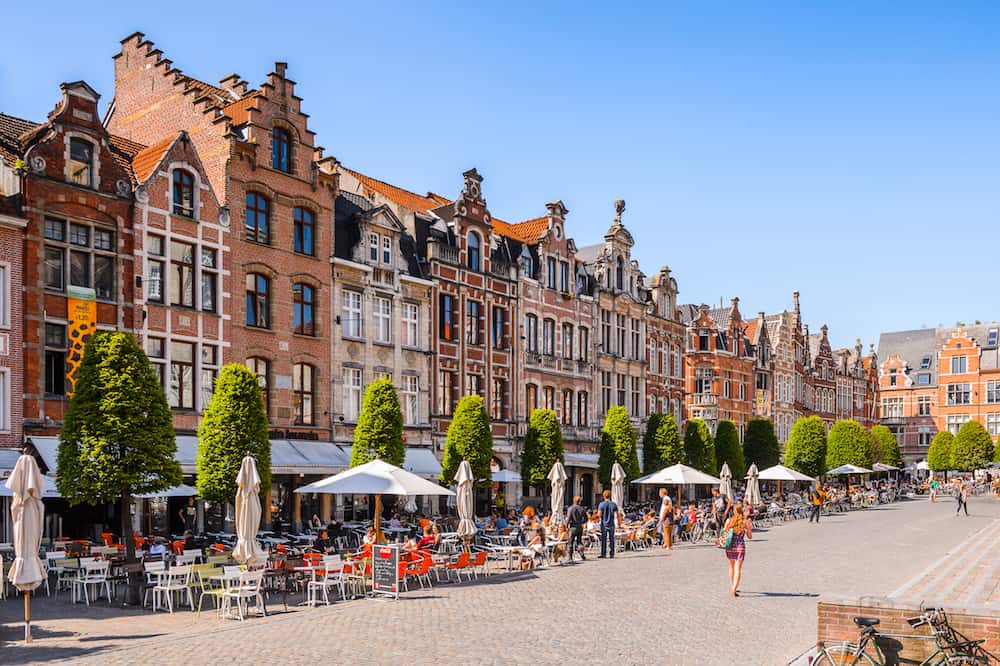
Tours to do in Leuven
A must for any passionate beer drinker is a tour of the Stella Artois Brewery. It’s easily the most iconic and well-known brewery in Leuven. While getting to taste many different beers is a big draw, the tours themselves are engaging and informative.
Leuven has a brewing legacy dating back to the 1300s, so it’s fascinating to learn about this historic link.
You’ll also learn about the brewing process, the role of each ingredient, and the unique twist Stella Artois brings to the mix. Tours of the brewery run on Saturday and Sunday afternoons for about two hours.
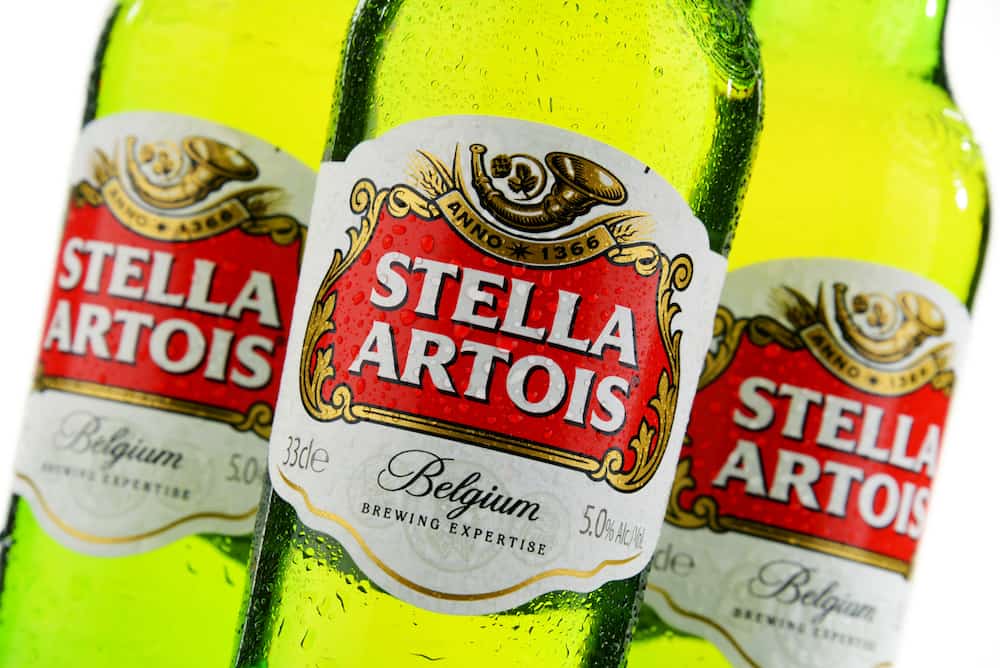
Day trips from Leuven
There are many day trips you can take from Leuven to other popular cities in Belgium. You can head back to explore Brussels or travel north to Antwerp.
Whether you catch the train or drive there, both options take 45 minutes. You could also check out the city of Ghent, which is an hour and 15 minutes directly from Leuven (or an hour if you’re coming from Antwerp).
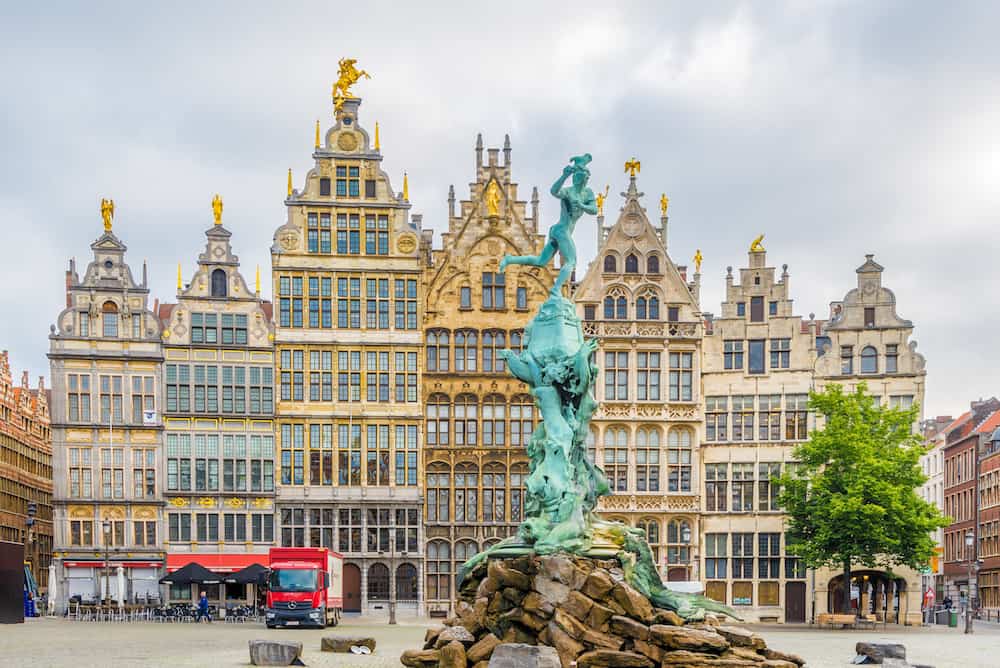
You can also explore another country for the day if you wish. Trains to Rotterdam and Amsterdam in the Netherlands take between one and a half to two hours. If you want to see Paris, it’s also a two-hour train ride away.
The trains leave frequently enough that you could leave Leuven early in the morning and get back for bedtime. You can easily find train timetables and plan your public transport journeys on the SNCB website.
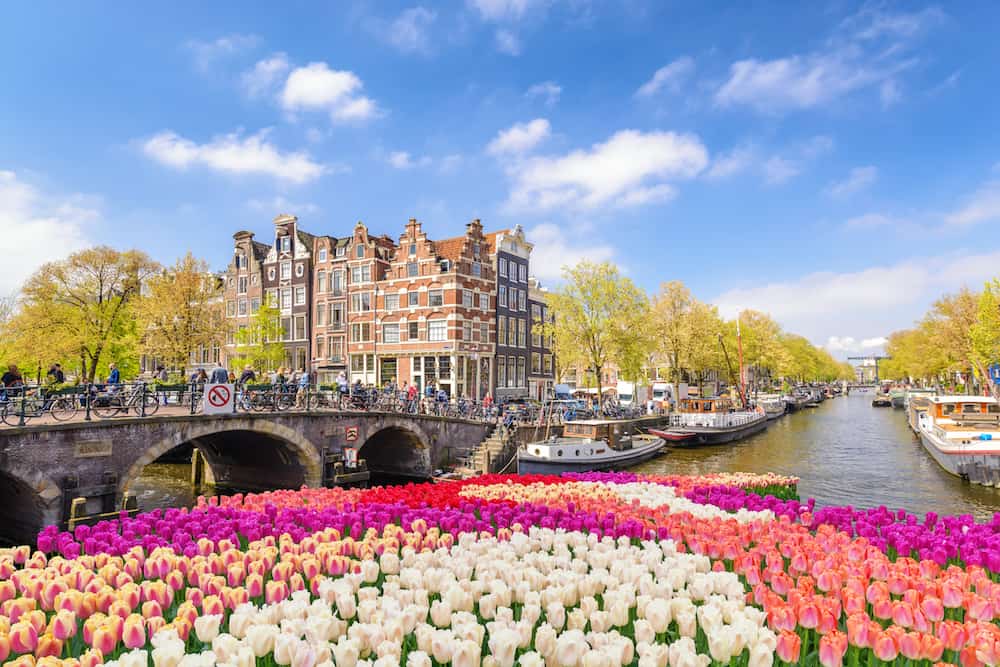
As this guide has shown you, Leuven has a lot of history but a young and vibrant energy. If you’re looking for a culturally-rich city that also knows how to have a good time, look no further than Leuven.
If you’d like to save it for later, please save it to Pinterest.
